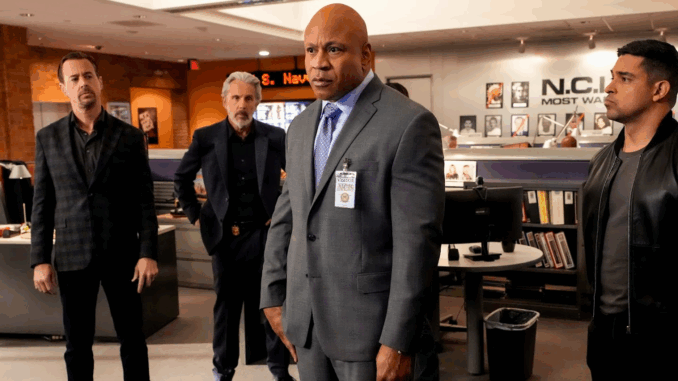
You’ve seen the crime scenes, the tactical takedowns, and the interrogations on TV — but behind every NCIS agent is real-world training that’s far more intense than what Hollywood shows. And now, the NCIS Major Case Response Team (MCRT) Basic Training Program has hit a major milestone: it’s officially FLETA accredited.
So what does that mean? And why should you care?
Let’s break it down in simple terms — no jargon, no fluff, just the good stuff.
🔍 What Is FLETA?
FLETA = Federal Law Enforcement Training Accreditation
Think of FLETA like the Michelin star of law enforcement training. It’s the highest standard — a federal stamp of quality that says, “Yep, this program meets all the tough criteria we expect for federal agents.”
If a training program earns FLETA accreditation, it’s undergone deep scrutiny. We’re talking reviews, audits, and inspections from top experts in federal law enforcement education.
What Is the NCIS MCRT Basic Training Program?
The Core Program Behind America’s Top Military Investigators
The Major Case Response Team (MCRT) is the elite squad of the Naval Criminal Investigative Service (NCIS). They’re the folks handling serious crimes involving Navy and Marine Corps personnel — from homicide to terrorism.
The Basic Training Program is where future agents learn to become effective case handlers, evidence collectors, and field investigators. It’s like the boot camp of criminal investigations.
🧠 What Do Trainees Actually Learn?
Real-World Skills Taught by Real Experts
The curriculum is intense and practical. Here’s what trainees can expect:
-
Crime scene processing
-
Forensic evidence handling
-
Interview and interrogation techniques
-
Cybercrime fundamentals
-
Use of surveillance tech
-
Legal procedures and courtroom prep
H4: It’s More Than Just Books and Lectures
NCIS training uses scenario-based learning, meaning recruits don’t just sit in a classroom — they’re out in mock environments, applying skills in real time.
🎖️ Why FLETA Accreditation Is a Game-Changer
The Stamp of Excellence
Getting FLETA accreditation isn’t just a formality — it means that the training program now meets the gold standard in federal law enforcement education.
It validates everything from:
-
Curriculum design
-
Instructional delivery
-
Assessment and testing
-
Instructor qualifications
-
Training facilities
That’s not just impressive — it’s transformational.
⚙️ How Does This Benefit the NCIS Agents?
Higher Training = Higher Performance
Agents trained under this newly accredited program will be:
-
Better prepared for complex investigations
-
More confident in the field
-
Legally and ethically equipped
-
Respected across federal agencies
This isn’t just about pride. It’s about improving national security and protecting those who serve.
💬 What NCIS Leadership Is Saying
Words from the Top
NCIS leadership has called this accreditation a “milestone achievement.” It reflects the agency’s commitment to excellence, transparency, and continuous improvement.
They’re not just training agents — they’re creating elite operatives who can respond swiftly and professionally to major cases.
🔎 A Closer Look at the Accreditation Process
What It Takes to Get FLETA Approved
It’s not easy. The program had to go through:
-
Peer reviews
-
Site visits
-
Compliance checks
-
Policy audits
-
Curriculum evaluations
This process can take years, and not every program gets through. That’s why it’s such a big deal.

🛡️ What This Means for National Security
Trained to Protect America
The newly accredited training program ensures NCIS agents are better equipped to:
-
Solve crimes faster
-
Handle sensitive investigations
-
Protect critical military operations
-
Prevent insider threats
That’s a win for military justice and a stronger national defense.
📈 Raising the Bar Across Federal Agencies
H3: A Benchmark for Other Programs
When one program raises its standards, others take notice. NCIS’s FLETA accreditation could push other agencies to improve their own training pipelines — and that means better collaboration and more effective law enforcement nationwide.
💡 The Human Side of the Badge
Why This Matters Beyond the Badge
Behind every NCIS agent is a person — someone with families, dreams, and a dedication to justice. Better training doesn’t just make them better at their jobs; it helps keep them safe, sharp, and sane in high-stress situations.
They’re not robots. They’re highly trained humans with a mission to protect.
📚 The Evolution of NCIS Training
From the Past to the Present
Over the years, NCIS has evolved from reactive crime investigation to proactive threat prevention. This accreditation is another step in modernizing and professionalizing the entire agency.
It’s not just about learning how to investigate — it’s about adapting to new challenges like:
-
Cyber threats
-
International terrorism
-
Organized crime rings
-
Human trafficking
🧩 The Bigger Picture
A Piece of a Much Larger Puzzle
NCIS doesn’t operate in a vacuum. Their success often depends on:
-
Working with the FBI
-
Collaborating with foreign agencies
-
Coordinating with military branches
This accreditation makes it easier to sync efforts, share intelligence, and speak a common language across agencies.
🌍 A Global Impact
U.S. Leadership in Global Law Enforcement Standards
By achieving FLETA accreditation, NCIS sets a global example. Other nations looking to upgrade their investigative training programs may now model them after this U.S. standard.
🎯 Final Thoughts: Why It All Matters
The world isn’t getting any safer. Crimes are getting more complex. Threats are harder to predict. But with rigorous, accredited training, the people tasked with protecting us can stay a step ahead.
This FLETA accreditation isn’t just a win for NCIS — it’s a win for justice, for the military, and for every American.
✅ Conclusion
When we hear “NCIS,” many of us think of TV drama and catchy theme music. But the real NCIS is doing serious work — and now, with a newly FLETA-accredited training program, their agents are more prepared than ever before.
This achievement proves NCIS is committed to excellence, not just in catching the bad guys, but in how they train the good ones. Accreditation means confidence. It means readiness. It means safety.
And at the end of the day, that’s something we all benefit from.
❓FAQs
1. What is FLETA and why is it important?
FLETA (Federal Law Enforcement Training Accreditation) ensures law enforcement training programs meet strict federal standards. It’s like a quality seal of approval.
2. How long did it take for NCIS to earn FLETA accreditation?
While timelines vary, most FLETA accreditations involve years of planning, development, and rigorous evaluation before final approval.
3. Does FLETA accreditation change how NCIS trains its agents?
Absolutely. It raises the bar, ensures accountability, and often results in better, more structured training outcomes.
4. Will this affect ongoing investigations or operations?
Not directly, but better-trained agents mean more efficient investigations and improved case handling overall.
5. Can other agencies learn from NCIS’s accredited program?
Yes! NCIS’s success could inspire similar upgrades in training across federal and military law enforcement agencies.
Now you know how the NCIS Major Case Response Team Basic Training Program earned its FLETA badge of honor. It’s not just about a piece of paper — it’s about building better agents for a safer tomorrow.